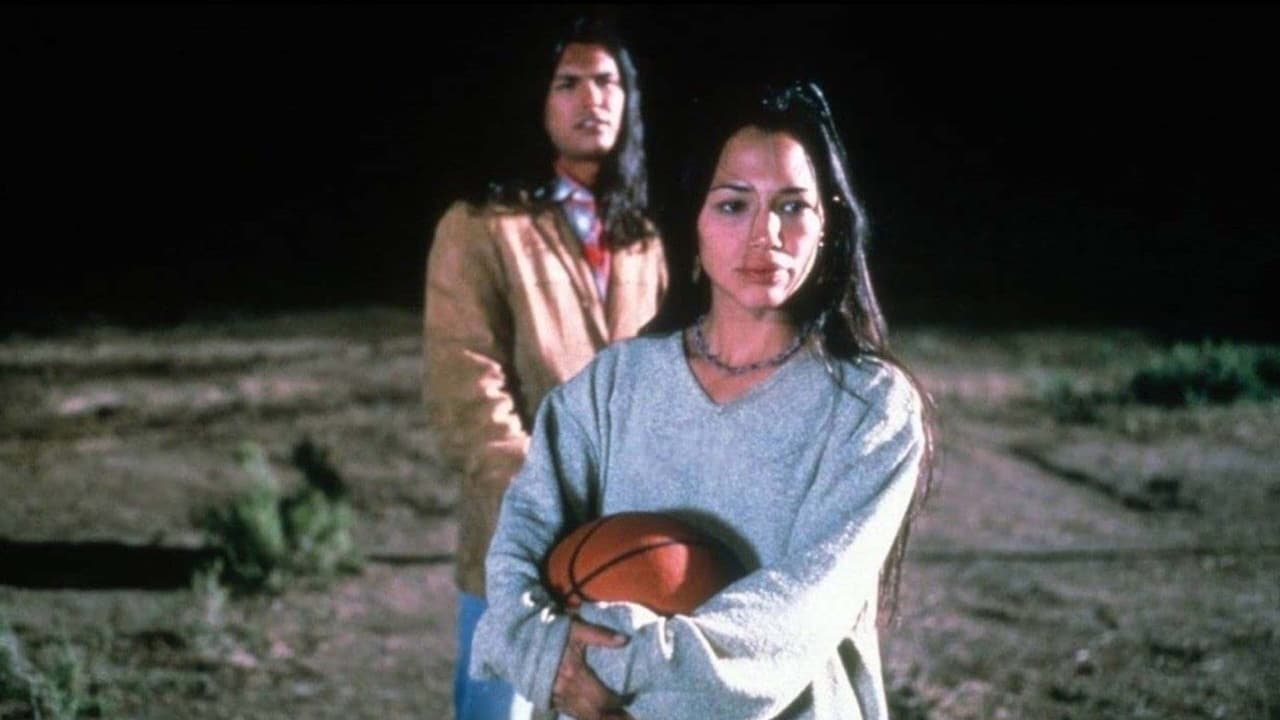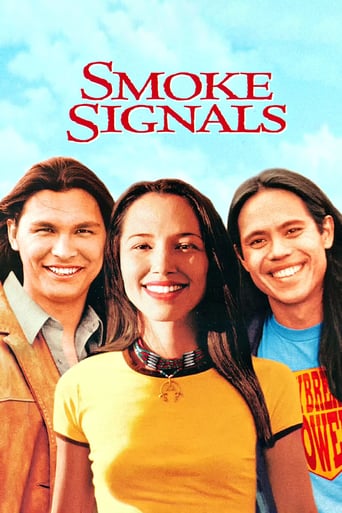Lollivan
It's the kind of movie you'll want to see a second time with someone who hasn't seen it yet, to remember what it was like to watch it for the first time.
Micah Lloyd
Excellent characters with emotional depth. My wife, daughter and granddaughter all enjoyed it...and me, too! Very good movie! You won't be disappointed.
Abegail Noëlle
While it is a pity that the story wasn't told with more visual finesse, this is trivial compared to our real-world problems. It takes a good movie to put that into perspective.
Raymond Sierra
The film may be flawed, but its message is not.
willroby009-1
The material here has real potential, but the execution leaves something to be desired. It is easy to point out some amateurish flaws in the production -- the obvious wigs, some spotty acting -- but the problems run deeper than these superficial imperfections. At times the movie is compelling, and it points to some profound issues. But too often, it pulls its punches, opting for a feel-good approach reminiscent of made-for TV movies. It covers the brutality, pain, and loss in its subject matter with a gauze of sentimentality and empty humanism. The inevitable redemption that resolves the troubled, troubling story feels too easy, merely the result of the genre's formula. It doesn't feel true to life. Notably, the director chooses to try to pull the viewer's heart strings at moments when the script seems instead to be calling attention to hard realities. Thomas's boring tales are treated as though they are genuinely entertaining, when in fact they seem to reflect the oppressive tedium of reservation life, the need to escape its futility, and to shroud the past in fantasy. Similarly, the characters' fondness for flatbread is portrayed as touching, when it seems more a comment on their grinding poverty -- baked bread is so cheap that to forgo it for homemade bespeaks a perilous level of want. On the other hand, the characters' sense of dispossession and victimhood is overplayed. The script seems to point to a somewhat more problematic sense of Indian identity, matching the overwhelming sense of having been wronged with a concomitant guilty doubt -- something like, "Did my ancestors blow it like some of my other relatives? Why weren't they strong enough to fight the white man off? Why couldn't they provide us a better life than this?" This would seem to tie in with the central theme of the movie, the difficulty of grappling with the absurd, of grappling with the inexplicable, senseless past; the way in which history weighs like a nightmare on the minds of the living; the way history is a nightmare from which we're trying to wake up. But the movie's impulsive softness pushes this hard element to the periphery. Of course it must be possible to forgive one's father for years of abuse and neglect, and it must be possible to make peace with a culture and people that once tried to eliminate yours, and that still treats you with indifference and casual cruelty. But surely it needs more than flashback accompanied by adult-contemporary guitar for this to happen. The unfortunate thing about this is that there is an untold story here that screams to be told, that the world needs to know. It deserves a more mature telling than this.
middleburg
The journey of Thomas Builds-the-Fire and Victor Joseph is told through a combination of social commentary, dreamlike tales and images, and a sensitivity for human emotion that sometimes takes your breath away. From the earliest tale of Thomas"flying through the air" during the harrowing and heartbreaking aftermath of July 4th celebrations, straight through to the stunning denouement with the powerful poem of "Forgiving our Fathers" accompanied by the haunting music of Ulila and the drummers and chanters which lifts us up to the Heavens, this film is a small masterpiece. It is very much a depiction of contemporary Native American culture--but it is told with such a keen understanding of universal human emotion, that everyone can relate to it. Love, regret, pain, forgiveness--all of these great enduring issues abound in the film. At what point do our lives turn out a certain way do to society, luck or misfortune, inner strength or lack of it--that final poem sums up the film brilliantly. The characters are so richly drawn--even those who appear ever so briefly in the film--that a rich tapestry is created as their lives and stories are woven together. Ultimately director Chris Eyre's and author Sherman Alexei's film celebrates forgiveness, understanding, acceptance, human compassion and perseverance. This is not to say that the film is somber or purely philosophical. My Heavens, no! There are a wealth of intriguing events, characters--moments of surprising humor, moments of very real sadness, the past woven seamlessly with the present, the reality woven seamlessly with Thomas' tales of dreams and imagination. The photography is glorious, the American West a place of great beauty--sometimes a desolate beauty, but beauty never-the-less. The music score is powerful and riveting. And most importantly we care about the characters--we want them to be happy, their lives to be fulfilled...we laugh with them, knowingly nod our heads in understanding with them, and in many instances, our hearts break right along with theirs. For anyone who has lost their parents--this movie can be unbelievably sad, but it can also be unbelievably cathartic and comforting. This is one for the ages!
Virgos_Eternal_Reign
The best thing I'd have to say about this flick is just the down right emotion of it. It digs deep into our relationships with family members and friends. It makes you think more of YOUR home life with your OWN secrets and built up anger towards your Mother or Father. It also questions the very boundaries of true Alcoholism. When do we draw the line & quit? When do we start loving those around us more than the bottle? But the movie has lotz of color! Some of the Landscape Shots in this film are really just remarkable. Lots of BEAUTIFUL scenes. Comic relief from the bitterness & tension comes from the character, Thomas. His long braided hair and big wide grin are a classic portrayal of an American Indian/Native American. Thomas is insightful & wise. Yet Goofy and just a bit on the gullible side. Making him an extremely lovable & unforgettable Character."SMOKE SIGNALS" A Movie is only made good by it's underlined Emotion. Smoke Signals offers a tremendous amount of pure, untapped and utterly raw emotion.
Sean
I saw Smoke Signals in my American cultures class. Seeing it from that point of view may have heightened my enjoyment of the film, but on its own merits it is still a fine film.Two young men, Victor Joseph and Thomas Builds-the-Fire, who grew up on a reservation together, set out to obtain the cremated ashes of Victor's estranged father, Arnold. These two are very engaging and fun to watch, thanks in no little part to the inspired performances by their actors. Like in any good film, their journey develops into something greater than picking something up. The ride director Chris Eyre takes us on is enjoyable and does not overstay its welcome.The entire cast and crew of Smoke Signals is Native American, giving it an interesting perspective, similar to movies like Thunderheart and Dances with Wolves. The audience is presented with contemporary life on the reservation, simply as it is. We get not just caricatures, but what feels like real people interacting with each other, living their lives. That alone merits a viewing of this film.Smoke Signals is a very solid, entertaining film that should be watched by anyone who wants to be aware of cultures in the United States or at the very least entertained.

